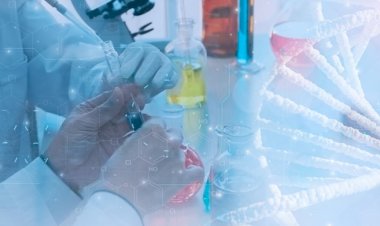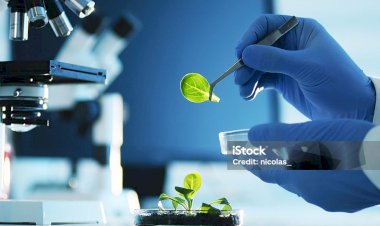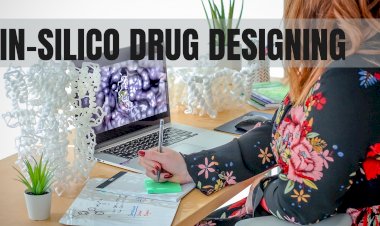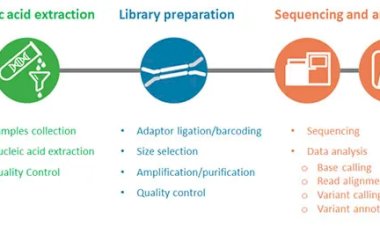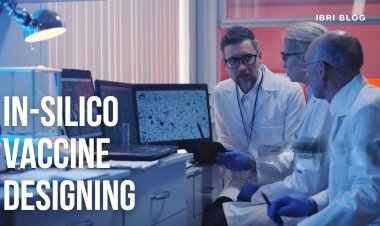Cosmetic Technology: A Fusion of Science and Beauty

Cosmetic Technology: Innovations, Industry Scope, and Opportunities
In recent years, the cosmetic industry has evolved beyond the mere creation of beauty products, transforming into a sophisticated field of science and technology. Cosmetic technology, driven by cutting-edge research, now integrates elements of biotechnology, chemistry, dermatology, and even AI, to develop advanced solutions for skin care, hair care, and personal hygiene. This expanding field is creating new opportunities for professionals with specialized knowledge and technical expertise.
In India, this growth is paralleled by an increasing focus on education and research, particularly within biological sciences. One such prominent initiative is the Diploma in Cosmetic Technology offered by various Indian Biological Sciences and Research Institutes, designed to equip students with the necessary skills and knowledge to contribute to this dynamic industry.
This blog delves into the scope of cosmetic technology, the rise of research in this domain, and how institutions are helping to bridge the gap between traditional biology and modern cosmetic science.
Cosmetic Technology: A Convergence of Science and Beauty
Cosmetic technology encompasses the formulation, production, and evaluation of beauty and personal care products. Today, the global beauty industry is driven by consumer demand for scientifically-backed, sustainable, and result-oriented products. Key areas of innovation include:
-
Nanotechnology: Used in sunscreens, anti-aging creams, and hair care products, it improves the efficacy of active ingredients by ensuring better absorption and delivery to target areas.
-
Biotechnology: Leveraged to create eco-friendly alternatives, such as plant-based stem cells and bioactive peptides, which replace synthetic and animal-derived ingredients.
-
Genomics and Personalized Skincare: With advancements in genomic research, brands are now focusing on personalized skincare solutions based on individual genetic profiles and skin types.
-
Sustainability: There is a significant shift toward developing products that are environmentally friendly, using biodegradable packaging and ingredients derived from renewable resources.
These technological advances are reshaping how cosmetic products are developed and marketed, with an emphasis on safety, efficacy, and sustainability. As the industry grows, it demands professionals who can operate at the intersection of biology, chemistry, and cosmetic innovation.
Scope of Cosmetic Technology in the Current Industry
The cosmetic industry in India is experiencing rapid growth, with a projected market value of $28 billion by 2025. Several factors are driving this boom:
Consumer Awareness: Consumers today are highly informed about the ingredients in their cosmetic products. They seek transparency regarding product formulations, focusing on safety, efficacy, and sustainability. As a result, there’s an increasing demand for dermatologically tested, hypoallergenic, and organic products that not only enhance beauty but also prioritize skin health. Brands are responding by incorporating scientifically validated ingredients and focusing on product safety to meet the expectations of an ingredient-savvy market.
Rise of E-commerce: The proliferation of online platforms has revolutionized the way consumers purchase beauty products. E-commerce has allowed brands to reach a wider, more diverse audience across geographies, reducing the reliance on traditional retail outlets. This ease of access has also fueled the growth of smaller, niche cosmetic brands, bringing innovative and targeted products to consumers worldwide.
Male Grooming Sector: Traditionally female-dominated, the beauty industry is now expanding into the male grooming sector. From skincare to beard grooming products, the demand for men's cosmetics has risen significantly. Brands are tailoring their offerings to meet the unique grooming needs of men, contributing to the overall growth of the market.
Natural and Ayurvedic Products: In India, the demand for Ayurvedic and herbal-based cosmetics has surged as consumers look for natural, safe alternatives to chemical-laden products. By blending traditional Ayurvedic knowledge with modern cosmetic research, India is becoming a hub for innovation in natural cosmetics, offering products that align with the global trend toward clean and green beauty.
Regulatory Standards and Safety: India has strict regulations to ensure consumer safety in the cosmetics sector. Regulatory bodies like the Bureau of Indian Standards (BIS) and the Drug Controller General of India (DCGI) enforce standards for product safety, efficacy, and quality. As a result, companies need well-trained professionals who understand both regulatory compliance and advanced cosmetic formulation techniques. Ensuring that products meet both national and international safety standards is critical for market success, making cosmetic technology expertise a key driver of innovation and growth in the industry.
These trends highlight the need for skilled cosmetic technologists who understand not just product development, but also consumer preferences, industry regulations, and sustainable practices.
Linking Cosmetic Technology with Indian Biological Sciences
Indian Biological Sciences and Research Institutes have recognized the need to cultivate talent that can contribute to the rapidly evolving cosmetic industry. Several institutions now offer specialized programs such as a Diploma in Cosmetic Technology.
This diploma typically covers topics including:
- Cosmetic Chemistry: Understanding the role of various chemicals and natural ingredients in product formulation.
- Dermatology: Basics of skin biology, which helps in designing products tailored to different skin conditions and needs.
- Biotechnology Applications: Techniques like enzyme technology, cell culture, and genetic engineering to create bioactive compounds used in cosmetics.
- Regulatory Framework: Understanding the legal and ethical standards for developing safe, effective products.
- Product Development and Quality Assurance: Training on scaling production and ensuring products meet industry standards.
The course links traditional biological sciences with the cosmetic industry’s needs, providing students with a multidisciplinary approach. This alignment is crucial for India, where the fusion of biotechnology and cosmetic technology can lead to the development of novel products, especially in the natural and Ayurvedic sectors.
Conclusion: A Bright Future for Cosmetic Technologists
As cosmetic technology becomes more complex and science-driven, there’s an increasing demand for professionals who can bridge the gap between biology, chemistry, and consumer needs. The diploma programs offered by Indian Biological Sciences and Research Institutes are an essential step in developing skilled experts who will lead the next wave of innovation in the industry.
With a focus on biotechnology, sustainability, and personalized beauty, India is positioned to become a global leader in cosmetic research and development. For aspiring cosmetic technologists, the opportunities are vast, ranging from working in R&D, product development, regulatory affairs, to even starting their own brands. The integration of modern science with traditional Indian knowledge holds tremendous potential, offering a unique edge in the global market.
By pursuing a diploma in cosmetic technology, students are not only preparing themselves for a lucrative career but are also contributing to a field that balances innovation with sustainability, making a real impact in the beauty and personal care world.
#cosmeticinnovation #indianresearch #cosmeticchemistry #skincarescience #sustainabilityincosmetics #biologicalsciences #cosmetictechnology #cosmeticdiplomaprogram #ibricourses #joboriented

 Manju
Manju 






